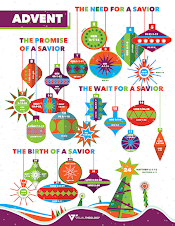This Sunday mornings class and AM service were canceled.
Part of this post is designed to provide some things for parents to do with their children.
These resources are based on the 1st - 5th grade Children's Church lesson on Joshua 23 and 24.
HERE is the note sheet for the 1st through 5th graders. HERE are several graphics for Joshua 24:15. HERE is a pdf script to use when doing the lesson.
The lesson is a good reminder all of the time and especially leading up to Thanksgiving.
Choose to worship God. The passage is filled with Joshua's thanks for what God had done.
Lesson Script:
Game - Choose between two.
- Have family members gather in the middle of the room. If you are doing this on your own, take the following survey The survey is also at the end of this post. Even if you do the activity, you can go back and do the survey.
- Put one item in one kind of fruit in one hand and the other kind in the other.
- Move to one side of the room for one item and the other side for the other item.
- Ask, why they choose the fruit they choose.
- Ask, would you change your mind if your chosen fruit started tasting like an old tennis shoe?
- Do steps 2 - 5 with candy bars and substitute another gross item in step 5.
- Do steps 2 - 4 with a snack item they can eat at the end.
- Suppose God was on the right side of the room. What might be one the other side? (What are opposites of God? The devil, sin, or idols)
- Why would you choose God?
- Would there ever be a time when choosing to worship and serve God would be a bad choice? Why not? (God never changes. He is faithful. He never stops being good, kind, and loving)
In Joshua 23 and 24, Joshua calls on the nation of Israel to commit to serving and worshiping the one true God instead of idols and false gods.
Work on the memory verse for the last couple of weeks: Joshua 23:14b
you know in all your hearts and in all your souls that
not one word of all the good words which the LORD your God spoke
concerning you has failed; they all have been fulfilled for you,
not one of them has failed.
The final two chapters of Joshua are filled with reasons to worship and praise God.
Read Joshua 23:1 - 3
How were the Israelites able to conquer the nations that lived in the Promised Land? (They trusted God. He fought with them and for them.)
Think back over this quarter's lesson and answer this questions. What had God done to show His power to the Israelites? (He delivered them from Egypt when they were slaves; He parted the Red Sea and the Jordan River; He gave them manna and quail when they were hungry; He knocked down the walls of Jericho so they could defeat their enemy)
When we look back at what God has done in our lives, we should be filled with love for Him and desire to worship Him. This is what Joshua wanted the Israelites to do.
Read Joshua 23:6, 7
What did Joshua remind the people to do? (Obey)
What did Joshua remind the people not to do? (Worship false gods)
Read Joshua 23:9, 10, 14
How many of God's promises has He failed to keep? (None of them)
What does that tell us about God? (He is faithful)
God requires committment
Look through Joshua 24:1 - 13, which is on the pdf sheet at the beginning of this post.
Find the 18 "I" pronouns in this passage and what God ("I") did in each of those situations.
Because God had done so much for the Israelites how should they have responded to Him?
Read Joshua 24:14
The Israelites needed to serve, respect and obey God alone!
His faithfulness to them meant that they should worship God with their whole hearts.
Read Joshua 24:15
Joshua made Israel's choice clear. They could not have their false gods and worship the one true God too.
Now they must choose. Who would they serve: False idols or God?
Read Joshua 24:16 -18, 24
Joshua chose to worship and serve God alone. The people followed and promised to serve God alone. Joshua told them they wouldn't. His point was that God is always faithful but people are not. We all let God down at some point in our lives.
But God never, ever, lets us down. His faithfulness is everlasting.
We are not Israelites but God calls us to worship and serve Him just the same.
Read Romans 12:1
Notice what it says.
Next week in class we are going to quickly review this lesson by making rock reminders. Throughout the book of Joshua, the Israelites use rocks and piles of rocks as markers for something God did.
This week's missionaries are the Pool's
Toddler SS
Jesus thanked God
for food
Jesus
thanked God for food.
John 6:1-14
Ps 92:1
PreK/ K SS
God’s grace for
Abraham
God’s plan to
provide salvation cannot be stopped
Gen 18:1-15;
21:1-7
Gen 18:14
1st SS
God remembered
Joseph
God wants to trust
him through disappointments
Gen 39, 40
Ps 40:1, 3b
2nd-3rd
SS
God helped Joseph
in Egypt
God’s plan
includes his enabling presence
Gen 39-41
Heb 13:5, 6
4th–5th
SS
The
Earth Speaks
God’s
judgment on the world is evident in geology.
Gen.
7:11, 12, 17-24; 8:1-5; Isa. 45:18; Rom. 8:19-23
Gen 7:20, 22
1st–5th CC
Joshua Challenges
Israel
God is worthy of
our sincere worship and devotion
Josh 23; 24
Josh 23:21b






